What is Website Traffic?
Website traffic is essentially the number of visitors that come to your web pages. Tracking and monitoring this traffic is crucial for understanding your audience and optimizing your content. Tools like Google Analytics and Adobe Analytics use a JavaScript snippet to record and analyze this traffic, providing insights into your own website as well as your competitors.
These tools allow you to track major traffic sources such as search engines, direct visits, referrals, emails, and PPC ads. Key metrics to focus on include:
- Total Traffic
- Pageviews
- Bounce Rate
- Average Session Duration
- Audience Demographics

Benefits of Tracking and Comparing Website Traffic
Monitoring both your own and your competitors’ website traffic can lead to better decision-making and growth opportunities. By keeping an eye on your website analytics, you can:
- Track Your Website’s Growth: Understand how your site is performing over time.
- Measure Seasonal Popularity: Identify peak periods and seasonal trends.
- Compare Year-on-Year Performance: See how your current performance stacks up against previous years.
- Benchmark Against Competitors: Evaluate how your site performs compared to others in your industry.
By comparing your website traffic to a key competitor, you can pinpoint areas for growth. For instance, if a competitor is getting significantly more traffic from search engines, it might be time to invest more in SEO to boost your search engine rankings and visibility.
Why Traffic Can Be a Vanity Metric
While high traffic numbers might look impressive, they don’t necessarily add value unless those visitors convert into leads or customers. For most businesses, a smaller number of highly engaged visitors is more valuable than a large number of uninterested ones. To get a true measure of your website’s performance, look at traffic alongside key engagement metrics like conversion rates. Use web traffic analytics tools that provide insights into user behavior to get the full picture.
Competitor Website Traffic Analysis: 5 Tools to Track Competitor Traffic
Since you can’t access your competitors’ analytics accounts directly, you’ll need to rely on tools that provide big data estimates. Here are five tools that make comparing website traffic simple:
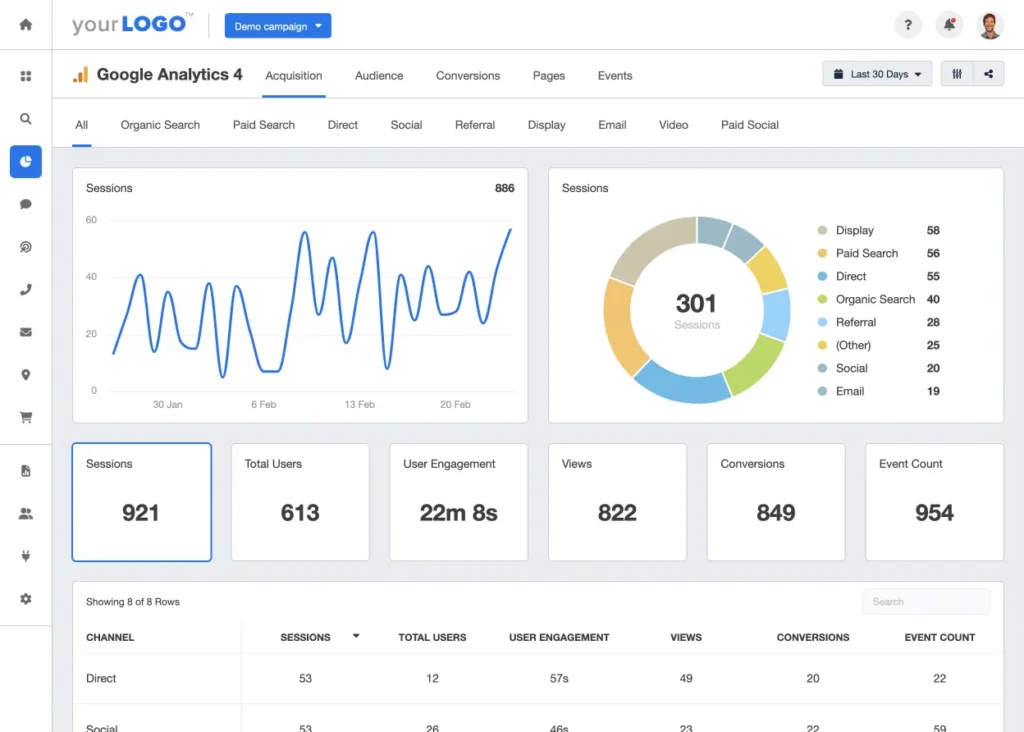
1. Google Analytics 4 (GA4)
GA4 is packed with data and reports that give you valuable insights into your site’s performance. While it currently doesn’t offer specific competitor benchmarking reports, you can prepare for future updates by:
- Extending Data Retention: Change the data retention period to 14 months in the Admin panel to get long-term insights.
- Activating Benchmarking: Enable ‘Modeling contributions & business insights’ in the account settings to start collecting data anonymously.
Pairing GA4 with a digital experience tool like Hotjar can add context to your data, showing you not just what visitors are doing but how they’re doing it. For instance, GA4 can identify high bounce rates, while Hotjar’s session recordings can show you what users do just before they leave your site.
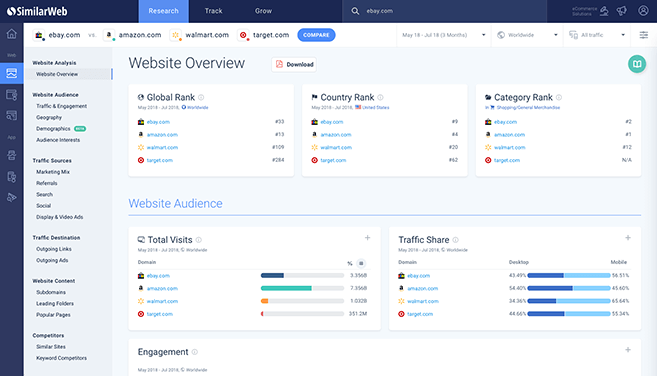
2. Similarweb
Similarweb is a website analysis tool that lets you compare web traffic for sites you don’t have access to. The free version allows you to see:
- Total Monthly Traffic
- Average Visit Duration
- Pages per Visit
- Bounce Rate
- Traffic by Country
- Traffic Sources
Upgrading to a paid plan gives you access to more detailed data, including category performance benchmarks and average bounce rates in your niche.
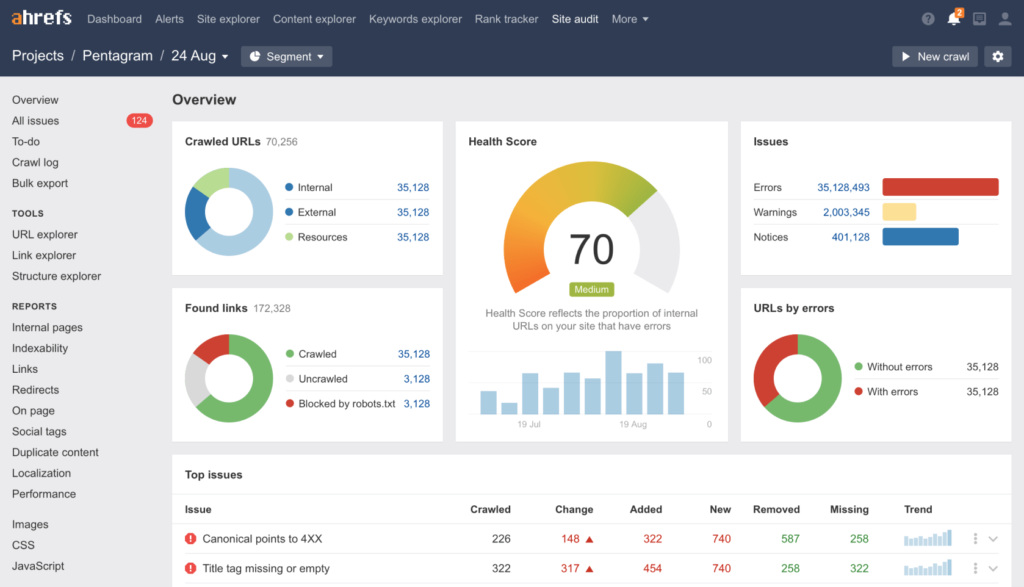
3. Ahrefs
Ahrefs is a premium SEO and keyword research tool that’s great for comparing organic search traffic. It provides estimates for:
- Monthly Organic Traffic
- Traffic Value (organic + PPC)
- Traffic by Country
- Keyword Rankings
- Referring Domains
- Backlinks
Ahrefs is particularly useful for understanding how your site’s organic search performance stacks up against competitors.
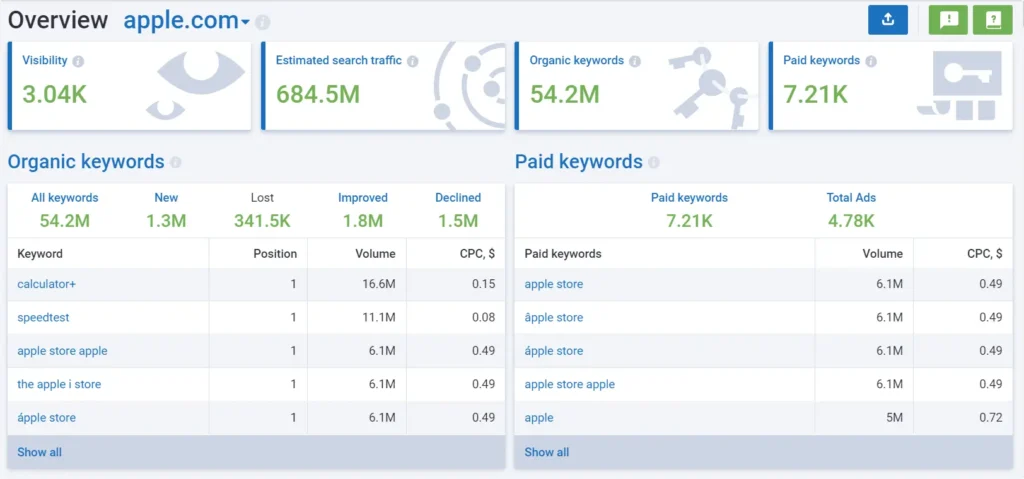
4. Serpstat
Serpstat is an all-in-one SEO platform that offers a range of insights into your own and your competitors’ websites, including:
- Organic and PPC Keywords
- Domain Visibility
- Traffic Share
- Top Pages
- Backlinks
Using Serpstat’s Rank Tracker tool, you can evaluate traffic share for your target keywords, providing a clear picture of your and your competitors’ performance in search.
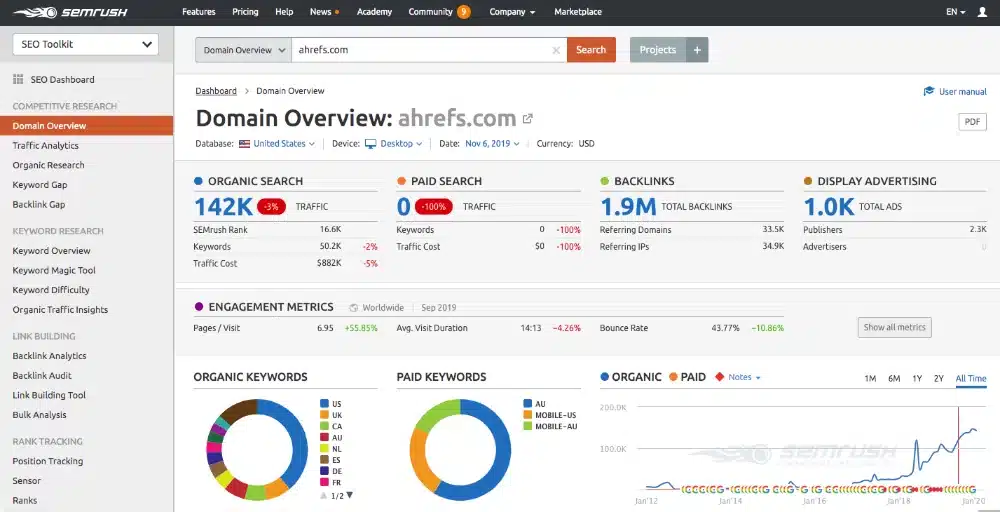
5. Semrush
Semrush is a comprehensive marketing tool that offers a free account option for generating up to 10 traffic analytics reports. You can compare up to five websites and get estimates for:
- Visits
- Unique Visitors
- Average Visit Duration
- Bounce Rate
Semrush uses clickstream data to estimate traffic metrics, providing an accuracy score (high, medium, or low) for these estimates. For more detailed data, you’ll need to upgrade to a paid plan.
Conclusion
Tracking and comparing website traffic is vital for making informed decisions and identifying growth opportunities. While high traffic numbers are impressive, focusing on engaged visitors and conversion rates is key to driving real value for your business. Use a combination of tools to gain comprehensive insights and stay ahead of the competition.

Leave a Reply